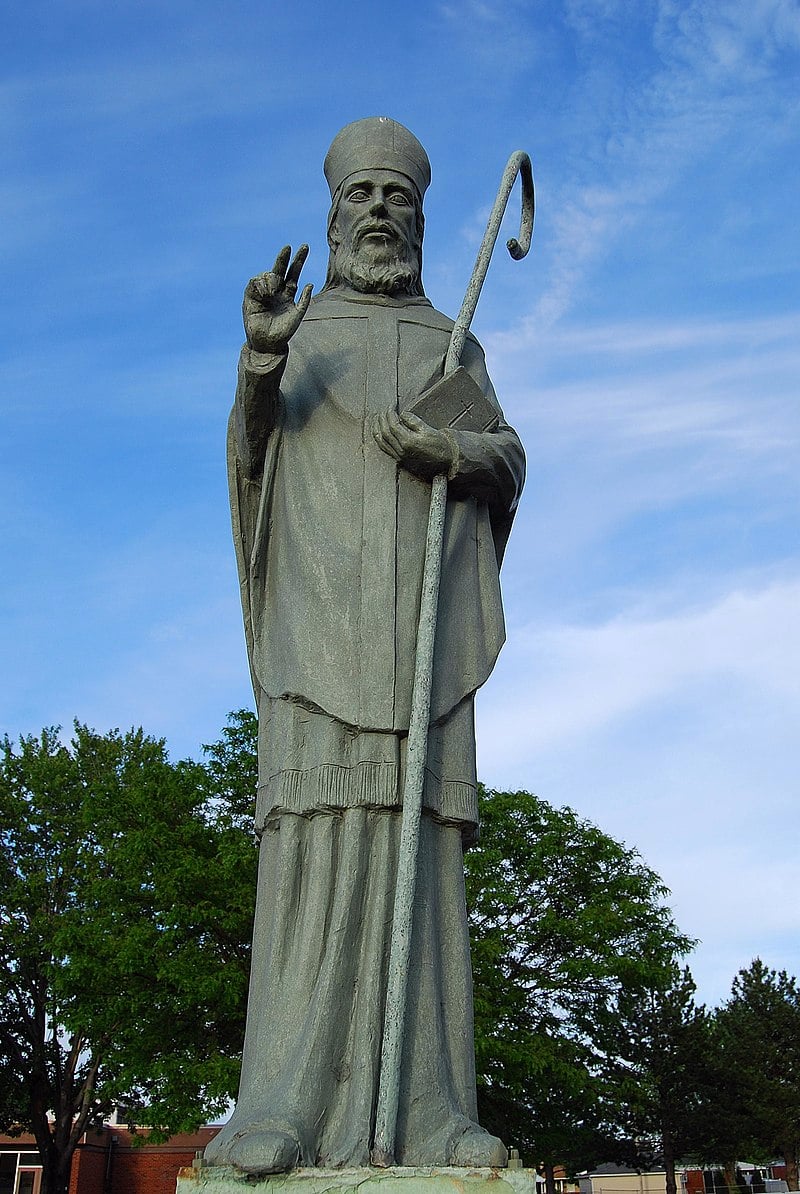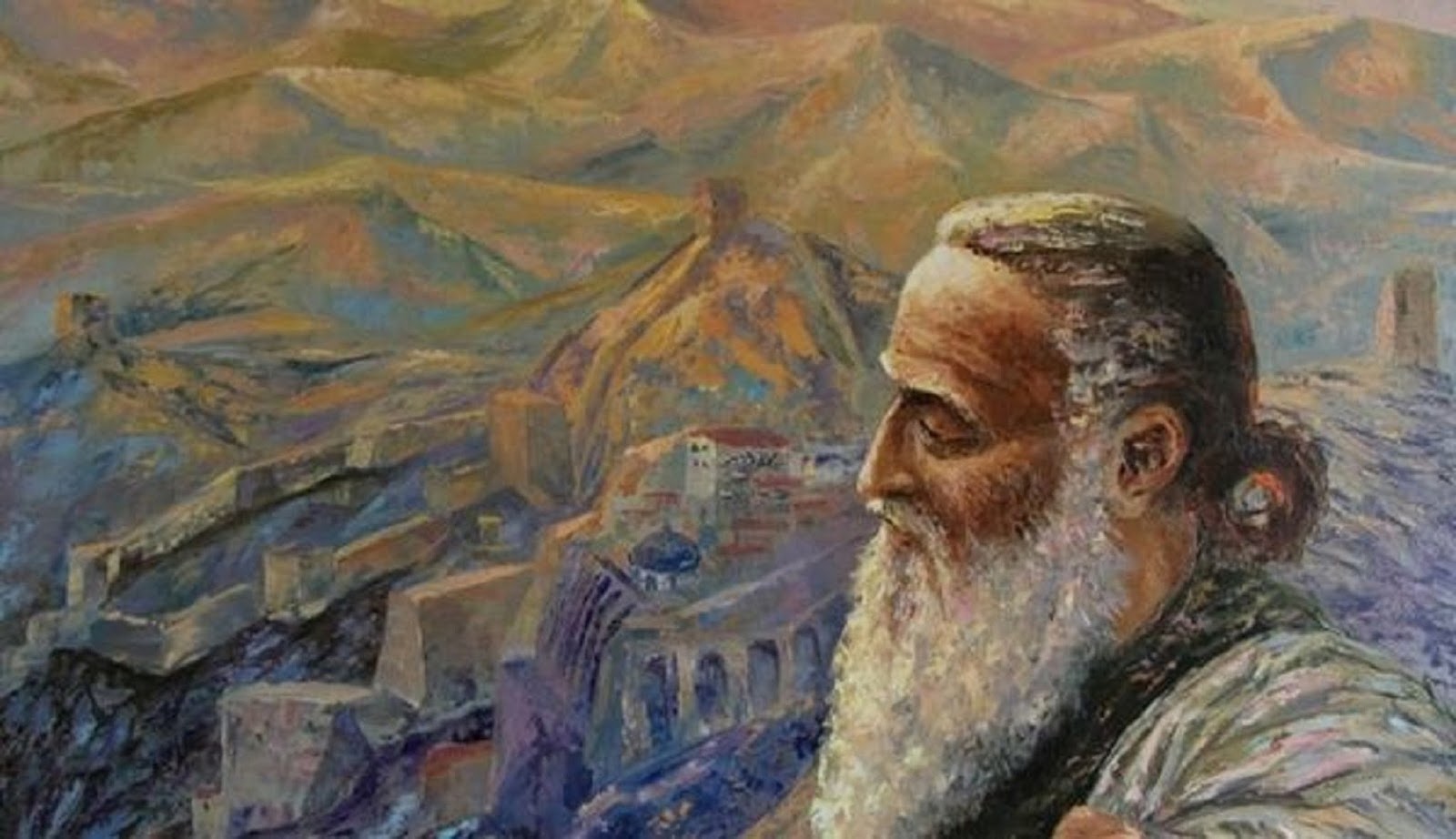Saint Malachy was a saint born in Ireland in the year 1094, very famous for a series of prophecies he made in relation to many popes, that is why we want to invite you to know here in this article the life of Saint Malachy, all those prophecies that he made and that gave him the fame he enjoys today.

Biography of Saint Malachy
Born in Ireland, in the city of Armagh in the year 1094, within the O'Morgair family, he was baptized with the name of Maelmhaedhoc of Armagh, his education was by Imhar O'Hagan and Abbad Armagh, and he became a priest in the year 1119 Saint Celsus. Even after being ordained he continued his studies in liturgy and theology at Lismore, St. Malchus. In the year 1123 he is appointed Abbot of Bangor and a year later he is appointed Bishop of Connor.
By 1132 he is in charge of the Primacy of Armagh and Saint Bernard says that at that time he was very jealous of religion. When Saint Celsus dies, he is appointed as the Archbishop of Armagh, although due to his humility it was very difficult for him to accept this position, and due to the intrigues that arose only two years later he assumed the same, but in only three years he manages to restore the discipline of the ecclesiastics of Armagh.
In 1139 he decides to travel to Rome and on his trip he visits where Saint Bernard is in Clairvaux, and when he arrives in Rome he is named Legate of Ireland, on his way back he gets five monks to be able to found Mellifont Abbey in Ireland in the year 1142 He makes a second trip to Rome and arriving at Clairvaux he falls ill and dies in the arms of Saint Bernard on November 2. Many miracles have been attributed to him, but he is most remembered as he had a prophetic gift, especially with the life of the popes, but there is no certainty that this story is true. He was canonized by Pope Clement III on July 6, 1199, and his feast day was set for November 3.
Prophecies of Saint Malachy
Saint Malachy's prophecies range from the life of various Popes to his own death, so we are going to take you on a tour of each of the most famous. Although there have been many debates about whether they are authentic or not, that is, if they were really written by Saint Malachi. The points against them are that an original writing of them has never been found, another is that they were lost until well into the XNUMXth century when they were published in the book Lignum Viate written by the Benedictine Arnold Wion.
As nothing is known about them in 400 years, it makes us suppose that they were not written by him and also because of the strange silence that there was on the part of his friend San Bernardo, who was the one who wrote his first biography and tells us the stories of several writings of the saint In the 1590th century, Father Menestrier hypothesizes that these prophecies may have been plagiarized so that there would be an influence on the election of Gregory XIV in the conclave of XNUMX. The motto of the Antiquitate urbis prophecy corresponded to this pope, which makes a reference to his city of origin and his episcopal seat, but no evidence of these plagiarisms was ever found.

This father observed that the prophecies that reached Urban VII, who died in 1590, had been fulfilled with total precision and each motto used its origin, its name, surname or the coat of arms used by the Pope. But with Pope Gregory XIV the motto did not fit with his origin, name or coat of arms since he was born in Soma Lombardo and was the Bishop of Cremona and his coat of arms did not have any insignia that made one think of the Antiquity of the City (Ex antiquitate urbis), so he thinks it is a fraud since from then on none of the popes agree with the slogans presented by Malachi.
Onofrio Panvinio, a highly respected historian of the 1556th century, believed that they were authentic to this Saint, since he was the corregidor and reviser of documents of the Vatican Library in 1139. It is believed that these prophecies were written between 1140 and 1590, When he was visiting Pope Innocent II, it seems that he gave him a letter in which he comforted the pope in his many tribulations, this manuscript was kept by the Pope and forgotten in the Vatican Archives until it was found in XNUMX.
The book published in Venice by the monk had a dedication to the king of Spain Philip II, and it was considered a biography of the Benedictines who had reached the episcopate, at the end it is written in it that Saint Malachy had written some booklets and it is when the list of prophecies is included, which was a known text but had not been published. Throughout Christian Europe the book was a great success, so much so that it was never corrected and never touched by the Inquisition.
The list in the book appears without any numbering, and in it the antipopes also appear, it is highlighted in its description that the Popes that are later than 1595 have a symbolic and generic character, while those that are prior to that date have a very complete and precise description of each Pope.
About the Popes
These are the most famous prophecies of this saint, it is written in the form of mottos and corresponds to each of the 112 Popes from Celestine II who was elected in 1130 and until the end of time. These mottos make reference to a particular country or a specific symbol, to his name or his shield, his talent or by any other reference.

For many, this relationship is just a few coincidences, but there are cases in which the relationship between the two was quite elaborate, there are others with such broad mottos that they can fit with several Popes. These are the prophecies of the last twelve popes:
- 101: Pope Pius IX from 1846-1878 motto of “Cross of Cross”.
- 102: Pope Leo XIII from 1878-1903 the motto was Light in Heaven.
- 103: Pope Pius X from 1903-1914 motto Burning Fire.
- 104: Pope Benedict XV from 1914-1922 motto Devastated Religion, a period that corresponds to the First World War.
- 105: Pope Pius XI from 1922-1939 motto Fearless Faith.
- 106: Pope Pius XII from 1939-1958 motto Angelic Shepherd.
- 107: Pope John XXIII from 1958-1963 motto Pastor and Navigator, he is considered the patriarch of Venice, the city of navigators.
- 108: Pope Paul VI from 1963-1978 motto Flor de las Flores, it stands out that his coat of arms had a fleur-de-lis.
- 109: Pope John Paul I (1978) motto De la crescent. His name was Albino Luciani, Italian meaning white light, born in the diocese of Belluno (Bella Luna). He is named pope on August 6, 1978 and on September 28 of that same year he dies under mysterious circumstances. In many important circumstances of his life, such as his priestly ordination and his death, there was a crescent.
- 110: Pope John Paul II from 1978-2005, motto of the Labor of the Sun, the pope who traveled the most around the world, and the one who lasted the longest in the Papal Chair after Saint Peter and Pius IX, it should be noted that both the Solar eclipses occurred on the day of his birth and death.
- 111: Pope Benedict XVI from 2005-2013, Motto La Gloria del Olivo, was born and was baptized on a Glory Saturday, in the Order of the Benedictines an olive branch appears.
- 112: Pope Francis, is the current Pope and his motto is Pedro Romano, unlike the other popes he is from the Jesuit school. According to prophecy, this is the last pope and it is in his government that the end of the church will come.
The prophecies of the popes end with a Latin phrase that is understood as saying that in an extreme persecution, in the Holy Church a Roman Peter will govern who must take care of his flock among many adversities, after which time the city of the seven hills, it would be destroyed and a terrible Judge would judge its people. The allusion to a city of seven hills can be Rome or also Jerusalem.

Many speculations have arisen such as if some popes were skipped so that they ended up in 112, in the same way the relationship between the popes and their mottos, there are cases in which these fit perfectly but in others very elaborate explanations are given What stands out about them is that they are not part of the magisterium of the Church, nor are they taken into account for salvation, since the church does not consider them valid at any time.
About Ireland
He predicted that his land would go through much oppression and persecution by England, and that through 7 centuries it would only have calamities, but that his people would be faithful to God and the church in all trials. After that time he would obtain release from him and those who had been his oppressors would receive punishment from him. Since Catholic Ireland was an instrument of England's return to the faith. This prophecy he wrote in an ancient manuscript that was found at Clairvaux, was copied by Dom Mabillon, and later passed on by Oliver Plunkett.
about his death
According to Saint Bernard's writings, Saint Malachy once announced the exact day of his death on November 2 when he was returning to Clairvaux Abbey and that Saint Bernard himself would take him in his arms at the time of his death. .
Other topics that we can recommend are the following: